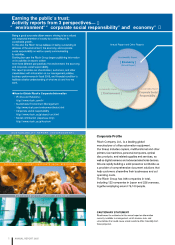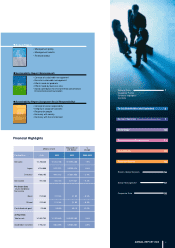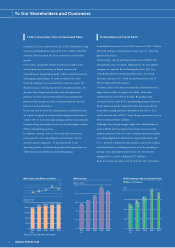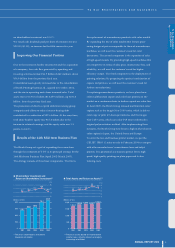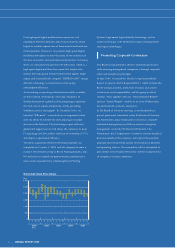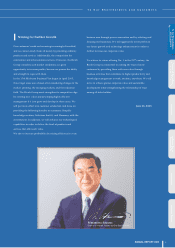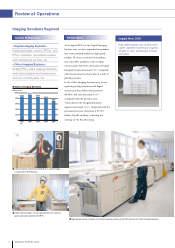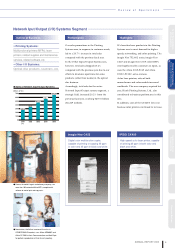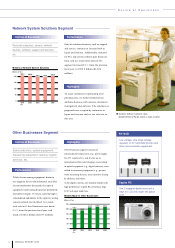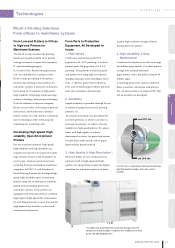Ricoh 2005 Annual Report Download - page 12
Download and view the complete annual report
Please find page 12 of the 2005 Ricoh annual report below. You can navigate through the pages in the report by either clicking on the pages listed below, or by using the keyword search tool below to find specific information within the annual report.
Corporate Philosophy/Management Philosophy/Ricoh General Principles on the Environment
Ricoh’s management philosophy was formally
introduced in 1986 based on the Company’s
corporate philosophy in order to establish and
nurture the corporate culture and system so that
survival in a time filled with increasing change,
information-oriented societies, diverse values, and
more intense competition could be ensured.
Love your neighbor
Love your country
Love your work
–The Spirit of Three Loves–
The Ricoh Group’s corporate philosophy was
established by its founder,
Kiyoshi Ichimura. He explained the philosophy as
follows: Everyone starts by loving himself/herself. As
time passes, however, this feeling grows and
expands to include all people, plants, and animals in
the world. This philosophy drives the Ricoh Group
toward better sustainable management.
Ricoh introduced the Ricoh General Principles on the
Environment, which are based on its management
philosophy, in 1992 and revised them in 1998 and 2004.
These principles show Ricoh’s commitment to sustain-
able management and are widely disclosed to the public
through various media, including websites. Based
on these principles, Ricoh Group companies have
independently established and managed their own
rules regarding the environment according to their
business type.
1. Complying with domestic and international regulations as a mat-
ter of course, we dutifully fulfill our responsibilities, setting goals
toward minimizing the environmental consequences of business
practice in keeping up with broader social expectations. In ach-
ieving these goals, we endeavor to create economic values.
2. We take steps to develop and promote technology that will en-
able us to reduce negative environmental consequences, and
proactively utilize such innovations.
3. In all our business activities, we strive for awareness of environ-
mental impact, thereby involving all Ricoh employees in imple-
menting continuous improvements to prevent pollution, use ener-
gy and natural resources more efficiently.
4. To provide our products and services, we spare no effort to re-
duce environmental effects in all stages of product lifecycle, from
procurement, manufacturing, sale, and logistics, to usage, recy-
cling, and disposal.
5. We at Ricoh wish each employee to be attentive to a broader
range of social issues and mindful of enhancing environmental
awareness through proactive learning processes, designed to
commit the employee to environmental conservation activities
according to his or her responsibility.
6. Coordinating closely with every country and region, we contri-
bute to wider society, for whom we actively disclose information,
participate, and assist in environmental conservation activities.
Established in February,1992; revised in October, 2004.
Corporate Social Responsibility
11
ANNUAL REPORT 2005
Our Purpose
To constantly create new value
for the world at the interface of people
and information
Our Goal
To be a good global corporate citizen
with reliability and appeal
Our Principles
To think as an entrepreneur
To put ourselves in the other
person’s place
T o find personal value in our work


